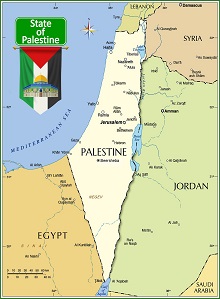 Diplomats Blast Israeli Military for "Forced Transfer" [ethnic cleansing] of Palestinians
Diplomats Blast Israeli Military for "Forced Transfer" [ethnic cleansing] of Palestinians
Destruction of Eight Villages in Violation of Obligations as Occupying Power - A number of top diplomats from the European Union and elsewhere are angrily condemning Israel for the military’s plan to expel Palestinians from eight villages and then destroy those villages to make way for “military training” zones. Israeli officials have been trying to destroy the villages since 1999, but had been blocked by the Israeli High Court. The Defense Ministry now insists that the villages were “illegally built” in military territory even though they have been there since at least 1830, some 150 years before the military claimed it. The destruction of the villages would displace some 1,500 Palestinians, who the military plans to force into the city of Yatta. The military argues that theoretically some of the villagers could be “terrorists” spying on their training, and that the court wouldn’t have jurisdiction to prevent them from such demolitions.







